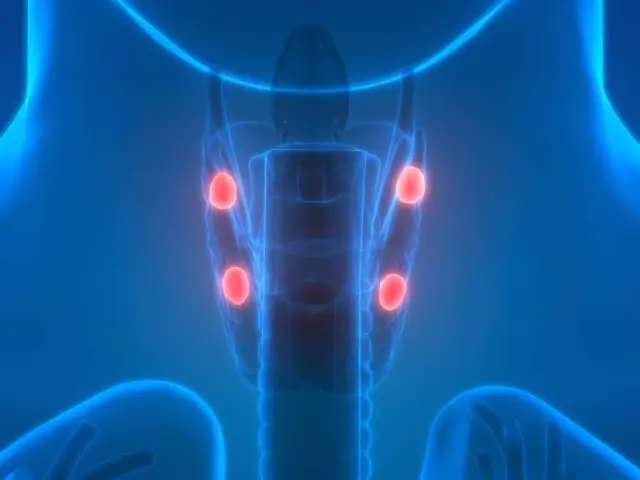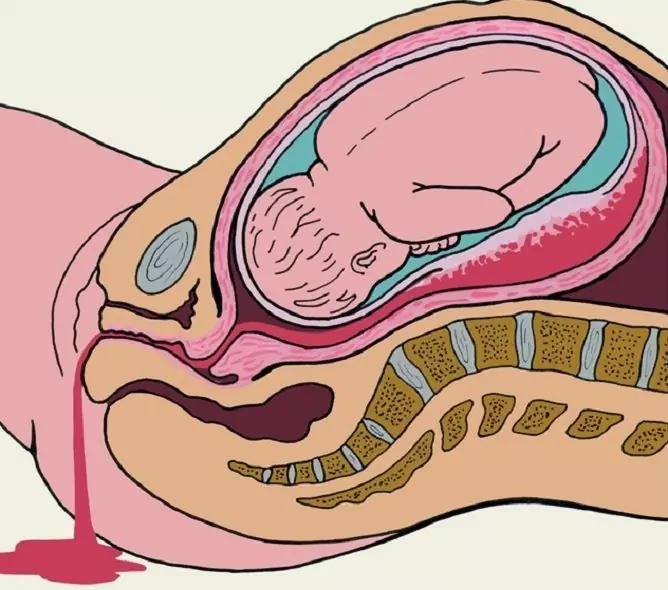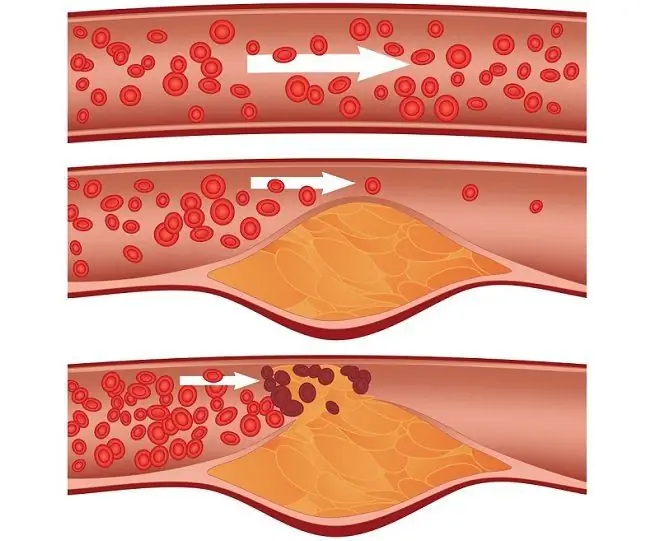- Author Rachel Wainwright wainwright@abchealthonline.com.
- Public 2023-12-15 07:39.
- Last modified 2025-11-02 20:14.
Hypercalcemia

Hypercalcemia is a disease associated with an increase in the concentration of calcium in the blood, reaching a level of more than 1.2-1.5 mmol / L of ionized calcium and more than 3 mmol / L of total calcium.
Causes and symptoms of hypercalcemia
The causes of hypercalcemia are pathological processes that negatively affect the body, increasing the calcium content in the blood. In some cases, the disease is caused by drugs for the treatment of the thyroid gland, Burnett's syndrome and malignant neoplasms. Also, the cause of hypercalcemia can be diuretics that have been taken systemically for a long time.
In the course of medical research, it was found that this disease occurs more often in patients who have undergone treatment in a hospital with thiazides.
If hypercalcemia does not have pronounced symptoms, then it is confirmed by biochemical studies and clinical examination.
At the first stage of the disease, no symptoms are observed, and with further development, symptoms from the nervous system, digestive organs and cardiovascular system appear.
The main symptoms of hypercalcemia include:
- from the digestive system - nausea, vomiting, anorexia, hyperacidity, constipation;
- from the central nervous system - dizziness, headache, fatigue, drowsiness, loss of coordination, confusion, stupor, coma, psychosis;
- on the part of the musculoskeletal system - myalgia, neuralgia, arthralgia, weakness, muscle spasms;
- from the side of the cardiovascular system - hypertension, palpitations, arrhythmia, tachycardia.
Drugs, hereditary factors, Paget's disease, excess vitamin D, malignant tumors and endocrine disorders can provoke hypercalcemia.
In acute hypercalcemia, there is severe weakness, nausea, sudden drops in blood pressure, lethargy, loss of orientation in space, stupor and collapse.
If the disease is not detected on time and the appropriate treatment is not prescribed, then urolithiasis, urinary syndrome and pyelonephritis develop.
Diagnosis of the disease
A number of diagnostic tests are done to detect hypercalcemia, including blood tests, urinalysis, PTH measurement, neck ultrasonography, immunoelectrophoresis, bone marrow puncture, and radiological examination of the skeleton.
Analyzed laboratory-chemical results make it possible to establish an accurate diagnosis and determine the degree of hypercalcemia.

If the disease is accompanied by the development of malignant tumors, then a complete clinical study is prescribed with a search program, including abdominal sonography, scintigraphy, X-ray and other radiological studies of the skeleton.
Hypercalcemia treatment
Treatment of hypercalcemia should begin with eliminating the causes of the disease, including malignant neoplasms, stopping the intake of vitamins, and reducing the sources of excess calcium intake.
An important stage of treatment is the restoration of the level of extracellular fluid and the correction of the composition of electrolytes in blood plasma.
Your doctor may prescribe calcium-lowering phosphates and prostaglandin synthesis inhibitors.
The course of treatment for hypercalcemia can consist of basic and additional drugs, which include hormonal, anti-inflammatory and immunomodulatory drugs.
If necessary, the treatment can be combined, and after a certain interval, it is repeated or supplemented with special inhibitors.
YouTube video related to the article:
The information is generalized and provided for informational purposes only. At the first sign of illness, see your doctor. Self-medication is hazardous to health!






